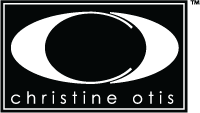I’m trying to build a stronger writer’s platform, and in that process I’m finding it to be a lot like writing.
I think Billy Collins summed it up well in his poem, Budapest, especially when coupled with the visual component.
Building that platform is first understanding its importance and then putting the pieces together to make it work for you.
If you’re asking what a writer’s platform is, you are not alone. I highly recommend to fellow writers not only to be a writer, but to learn how to be creative and knowledgeable outside of that area. In doing so, you will become a business person, a negotiator, a visually minded individual, a person who is thinking ahead, always moving forward, even if it feels like you’re moving backwards.
Platform building is how to promote YOU — the writer, the artist or whatever it is you want to promote about you.
As a writer, I want readers to follow me; I want them to be engaged in what I’m writing about, what it is I do as a writer.
More and more agents are asking writers if they have a platform. Why? This will let them know how many followers you already have, so when they invest in you, they already know there will be returns on that investment.
Look at platform building like you would story building. It takes time, patience, research and trust in yourself.
Here are some recommended highlights I have for those who want to know more about platform building:
- Performances — this means anywhere you perform your work, make sure people know who you are, how they can find you and how they can follow you. For example, when doing a reading mention your blog/website/or your next appearance. Word of mouth is one of the best builders.
- Blogging — be smart about it. Value your readers and listen to what they have to say when providing feedback. Use tracking devices, like Google analytics, to find out where your traffic is coming from and how much traffic you’re actually receiving, know your Google page ranking and your Alexa ranking. Need more marketing information? Hubspot’s grader.com is another source.
- SEO—Search Engine Optimization; the more often you write, the more often you appear in search engines, which is exactly what you’re looking for and want. Invest in SEO plug-ins, frequently used keywords and titles for your blog posts; don’t forget this rule of thumb: know thy market.
- Content — write often and be consistent. Bring quality to your readers by offering something different than what is out there. Include guest-bloggers and other writers. This adds interest for your readership and keeps them coming. Interviews are equally important; make them relevant.
- Marketing — a must have. What do you do with all the information you have from all the SEOs and other site rankings? Educate yourself if you aren’t already in marketing, or rub elbows with other marketing people, so you know you’re doing the right thing.
Writing is an ongoing process and so is marketing YOU. If you can’t sell yourself, than who can? You are your best seller. Always remember when seeking that agent, to make your talent and your knowledge shine.
